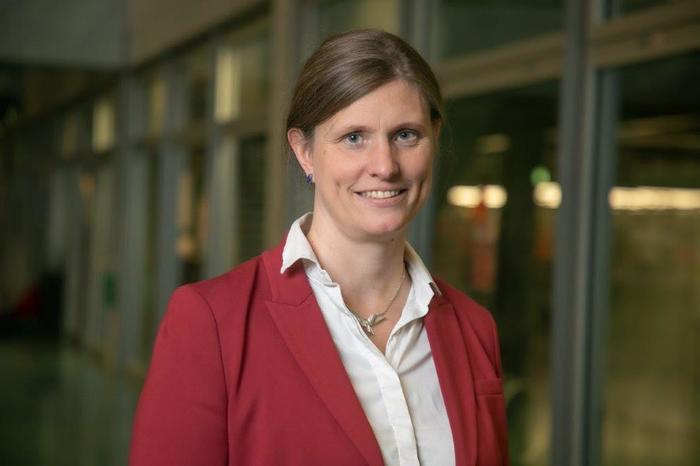Research Hub Berlin: “An Outstanding Portfolio”
In addition to her work advancing the internationalization of the Berlin University Alliance, Ulrike Hillemann-Delaney has led the International Affairs division at the Technische Universität Berlin since 2017. She brings extensive experience in international research collaboration from senior roles at institutions including Imperial College London and the British Embassy in Berlin.
What role does the International Affairs division play in shaping a university’s strategic direction?
Internationalization is an integral part of the university’s strategic development. In that sense, we support all core areas of the university—research, teaching, and knowledge transfer.
How do you balance these different responsibilities?
For example, through an overarching framework. In 2024, we developed the concept TU Berlin International 2030 to strengthen TU Berlin’s internationalization and consolidate its position as one of Europe’s leading technical universities. It is based on four guiding principles: addressing global challenges together with our international partners, promoting excellence in research and teaching, fulfilling our global responsibility, and maintaining the freedom and security of research.
You’ve been leading International Affairs at TU since 2017. What has changed over that time?
We now face increasing geopolitical tensions, uncertainties, and crises—issues we didn’t have to address to this extent back in 2017. For example, we had to establish a crisis mechanism in case TU Berlin members encounter emergencies abroad. At the same time, research security has become much more important, and there is a greater need for guidance on how to manage international collaborations. We also handle this together with the BUA through the Diplomatic Resilience project—the alliance is very helpful here.
How do the BUA’s international strategies complement TU Berlin’s own initiatives?
For example, BUA’s new Berlin Global Scholars Gateway, aimed at international students and researchers, serves as a link between our International Campus and the Welcome Centers of the other partner universities. BUA’s strategic partnerships also complement our own very well. For instance, we will not establish a separate strategic partnership in the UK for TU Berlin—we rely on the Oxford partnership through the alliance.
Conversely, our strategy on global responsibility helped develop the Berlin Center for Global Engagement (BCGE). This achieves things TU Berlin could not accomplish alone—for example, developing approaches for equitable cooperation. HU and FU contribute extensive expertise, particularly from their regional studies programs. We are also running two large DAAD projects with partners from the Global South. And, of course, TU Berlin could have independently signed the Africa Charter, as the BUA did at the end of last year, but the impact would not have been the same.
The first funding phase of the BUA under the Excellence Strategy is nearing completion. What would you consider the key achievements and milestones in internationalization?
First, we have brought the Oxford collaboration to life. There are now numerous joint research projects, including many co-funded grants. When BUA started, there was only a memorandum of understanding—since then, an incredible amount has happened. We also built the BCGE, which initially existed only on paper. The International Advisory Board confirmed that this was uncharted territory; there are few initiatives like it elsewhere. At the same time, we have managed to support many exciting research projects, which helps us continue shaping the future of internationalization.
What makes the BUA and Berlin as a research location attractive to international students and researchers?
Students and researchers in Berlin encounter an alliance of four outstanding research and teaching institutions. They also enjoy a fantastic city, which politically—as well as through its start-up scene—offers significant advantages. I believe that, especially through the closer integration of research and gradually also teaching across the institutions, students coming here have an outstanding portfolio to choose from. You don’t get that at every location.

